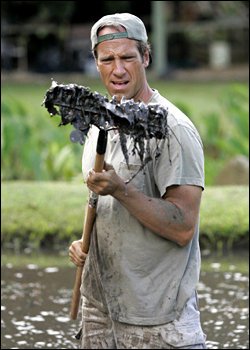
I can tell already that the literature review is going to be a logistical nightmare. Two weeks in and I've already got 20 sources on my annotated bibliography. I haven't even touched the public diplomacy literature yet--these are just books on study abroad and culture shock.
As a way of keeping myself sane and my thoughts organized, I'm going to stick with reading from one subject area each week and write up a little blog post about how the lit review is going.
This week I have been mostly reading (Fast Show reference, haha!)...about culture shock. The psychology and sociology culture-contact literature is really quite repetitive, and I haven't found anything surprising. It all seems like common sense to me--foreign students who spend a great deal of time with locals show better overall adjustment than foreign students who are insular (hanging out exclusively with people from their home country). Well, obviously--isn't that the whole point of studying abroad, to hang out with locals? That's what "fostering mutual understanding between the peoples of two nations" is all about.
The only concept I really found interesting was this idea of cultural distance. It's common sense, just like the other findings, but it's still an interesting way of looking at the world. Basically, students from similar (proximate) cultures are going to have an easier time adjusting and a better overall sojourn experience than students from dissimilar (distant) cultures. Now, what I find interesting about that is that geographic distance has nothing to do with cultural distance. A student from Australia going to the UK is just as geographically distant as a student from China (even a bit further than the Chinese student!), but their culture is more similar, so the Australian has an easier time adjusting than the Chinese student.
The interesting thing about this from my own experiences is that I've never felt culture shock in the UK, but I have felt it in my own country. When I went to Vanderbilt University in Nashville, I was surrounded by affluent, conservative Southerners. Two anecdotes illustrate my culture shock there:
1) There was a girl on my hall who was majoring in the same subject as me, and when I asked her why she had chosen that major, she replied, "Well, it doesn't really matter what I major in, I'm just here to find a husband." While my jaw dropped in horror, nobody else around us seemed to think that was a strange answer.
2) As it was election season (Oct 2004), I had a Kerry/Edwards sign in my ground-floor dorm window. One night I heard a couple of drunken frat boys yelling outside, and one quite close to the window yelled "I'm pissing on Edwards! Edwards is a bitch!" I yanked open the blinds to see a guy scampering away. I felt so violated, harrassed and unwelcome...
When people ask why I didn't stay at Vandy, I just tell them one (or both) of these stories. If they're at all liberal or tolerant, they get it.





